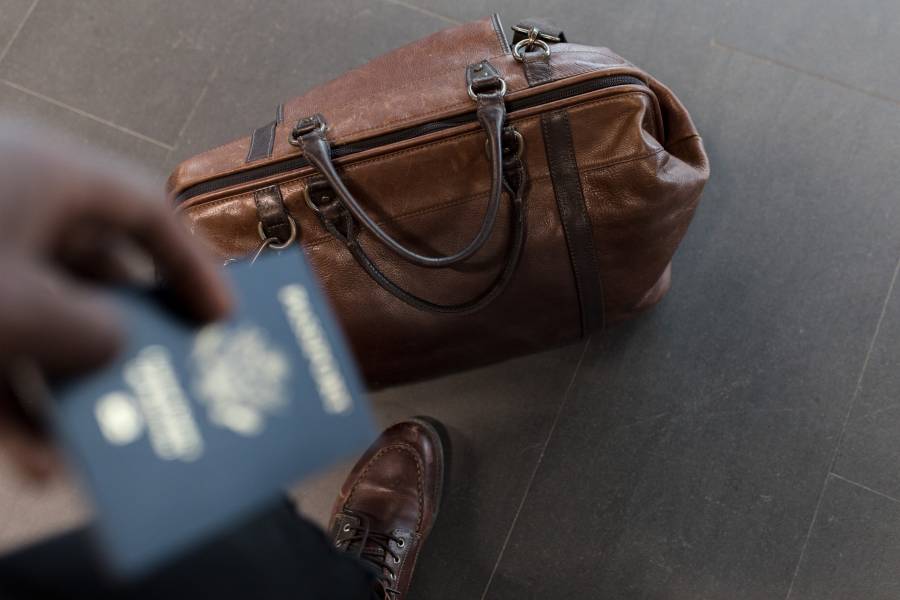Luxembourg is a country which prides itself on its individuality and welcoming mentality. The origin of the nation’s motto says it all:
Kommt hier aus Frankräich, Belgie, Preisen — Come here from France, Belgium, Prussia,
Mir wellen iech ons Hémecht weisen — We want to show you our fatherland
Frot dir no alle Säiten hin — Ask in all directions
Mir welle bleiwe wat mir sin. — We will stay what we are.
This historically derived notion of hospitality and predilection for embracing individuality has undoubtedly played a key role in their current international business model.
As a result, it comes as no surprise that Luxembourg’s uniquely inviting policies, coupled with their solid financial reputation make the nation the main attraction for international fintech businesses looking to set up shop in Europe.
Luxembourg’s history of welcoming American business goes explicitly as far back as the 1950s when Goodyear, one of the world’s leading tire companies, looked towards the country to establish their first international R&D center. This center is currently the largest one the company owns outside of its headquarters in Akron, Ohio.
I recently had the pleasure of interviewing Luxembourg’s current Minister of Finance, Pierre Gramegna, at the Global Ventures Summit | Silicon Valley Tours the World (GVS) reception in San Francisco, hosted by Parkpine Capital. “Parkpine Capital’s thesis is to invest in scalable tech companies that can immediately scale beyond boarders.
We are very excited about GVS Luxembourg as the first stop in Europe, and we look forward to announcing deals in @GVS Luxembourg this winter. Thanks to Nasir Zubairi and Alex Panican at Luxembourg’s Fintech Innovation hub for plugging Parkpine into the ecosystem” – Ahmed Shabana, Managing Partner – Parkpine Capital
We discussed the initial draw of Luxembourg to American financiers, which started back in the 1960s when numerous American players began swarming the country as a way to circumvent the Equalization Tax imposed by the Kennedy administration.
During this interview, Gramegna elaborated on the circumstances surrounding the Kennedy administration’s policies. “If you’re trying to make the life of business difficult, business is always going to find a way around it.” And indeed, they did. “The top 10 investment fund players of the US are all there with huge presence and huge portfolios,” said Gramegna.
However, it’s not just America that has a particular affinity for the nation. Luxembourg has 140 banks in total that have established locations within their borders.
This number includes not only the most prominent players in America but seven of the largest Chinese banks as well that have headquartered themselves in the country.
Luxembourg offers something that very few places in Europe can offer growing fintech companies. For one, they have a wealth of the traditional players. They’re additionally at critical mass in a robust market where companies can have access to 500 million consumers.
Luxembourg also happens to have an AAA investment grade, a prime rating currently afforded to just 12 countries in the world. These ratings primarily assess the creditworthiness of an entity and Luxembourg gets the highest of marks by S&P, Moody’s and Fitch.
According to Gramegna, this means that fintech businesses can rest assured.
“Whatever financial initiative you take, you’re in a country that is extremely safe,” he said. Luxembourg additionally has decades of political continuity that have served as a significant driver in ensuring their warm policies towards international business investment remain solid.
“The present government has been very successful and has received the confidence of the people…We have a kind of common ground between all majority parties which ensures there’s going to be no surprises.” The nation is also quickly becoming an international hub for electronic payments.
“We have become over the years…the capital of e-payment in the heart of the European Union starting from Paypal and Amazon being there for over 10 years to more recent successes like Rakuten, who is a leader in Japan, or Alipay which is the payment arm of Alibaba of China,” said Gramegna.
Luxembourg’s success lies primarily in their generous business model which prides itself on limited bureaucracy.
As a result, it is one of the most successful financial centers in Europe. “A company that invests in Luxembourg is not a number, it is a company that we cherish, and we know and that we will, in one way or another, help if it has challenges ahead. And I think that has been a recipe that has worked well.”
Luxembourg’s diverse population also contributes to its business-friendliness.
They are a multilingual nation at heart; with a high population of French, Germain, Italian, Spanish and English speakers. If you’re an English-speaking business setting up shop in the country, you can file your requests in English even though it is not an official language, nor a policy mandated by law.
The country prides itself in its customer service model and its willingness to dive in and help growing businesses.
The growing companies are no doubt a significant reason behind the fact that, according to the Finance Minister, more than 50 startups have elected domicile at their Luxembourg House of Financial Technologies. “…What we can offer is not only that we can solve your formalities…but basically introduce you to the business community that is already there,” said Gramegna.“You are not a number. You are a person. You are a company that we cherish, and with that, you are already on the right track.”
According to the 2019 Index of Economic Freedom, Luxembourg currently ranks 17th globally. With a financial freedom score of 80, a business freedom score of 68.8 and a financial freedom score of 80, it comes as no surprise that this tiny little nation serves as a major attraction to international business from all over the globe.


















